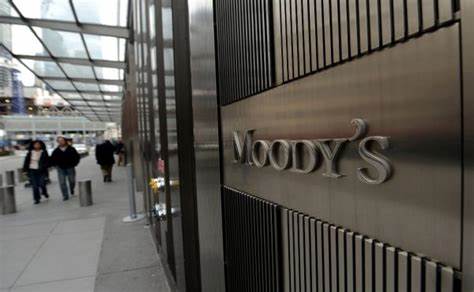International ratings agency, Moody’s, is forecasting a Gross Domestic Product (GDP) growth rate of 4.0% for Ghana this year.
This is a sharp contrast to the 1.4% projection by the World Bank’s 2021 Global Economic Prospects released last week.
Ghana’s expected growth rate of 4% will place it 10th on the African continent and 3rd in West Africa.
Niger will be the fastest growing nation on the continent with a projected 8% GDP, followed by Mauritius which is expected to grow at 7.8% and Ivory Coast with 6.4% growth rate.
According to Moody's 2021 Sub-Saharan Africa Outlook report, the Gross Domestic Product growth rate will be lower than the over 5% consistent growth rate recorded by the country over the last decade.
Moody’s said the shock from covid-19 pandemic, elevated liquidity threat as well as weaker institutions and governance are the three key issues to be keenly watched this year.
It further said the expected lower growth will lead to depressed revenue from already low revenue bases.
“Low domestic revenue mobilization will continue to plague Sub-Saharan Africa sovereigns particularly Nigeria, Ethiopia, Ghana (B3 negative), Tanzania and Zambia, many of which have revenue/GDP ratios well below 20%”, it stressed.
Furthermore, “lower revenue as a result of the shock [covid-19], coupled with spending pressures (both health-related and some fiscal stimulus) will lead to recurring deficits and will delay fiscal consolidation”, it emphasised.
Ghana has a revenue to GDP ratio of below 20%, and therefore the underperforming revenue is a major concern which cannot meet finance chunk of the government expenditure.
It however said favourable gold prices will likely support Ghana’s current account balance, boosting foreign inflows and stabilizing the cedi.
Sub-Saharan Africa to grow slowly in 2021 as debt costs intensify
Lower growth and rising debt costs will characterize growth in SSA in 2021, Moody’s said.
“We expect SSA sovereigns to face severe challenges in grappling with the fallout from the coronavirus shock as lower overall economic growth and revenue coupled with higher government expenditure will lead to wider fiscal deficits and higher debt.”
It further pointed out that “higher debt levels, weaker debt affordability (amid both lower revenue and higher interest payments) and low buffers will challenge SSA sovereigns’ institutional capacity to manage economies, public health, budget positions, financing strategies, reserves and social discontent, thus elevating event risk”.
Economy contracted in Quarter 3
Ghana’s economy entered into recession in the third (-1.1%) of 2020.
The Agriculture sector however recorded the highest growth of 8.3%, whilst Industry and Services sectors contracted by 5.1% and 1.1% respectively.
According to figures from the Ghana Statistical Service, the economy with oil contracted by 1.1%, but grew by -0.4% without oil.
Latest Stories
-
Scores injured in Walewale as soldiers are accused of brutal assault
8 minutes -
Mahama meets Mamprugu king over Bawku chieftaincy stalemate
24 minutes -
Mahama calls for robust investment to uplift vulnerable populations
35 minutes -
Policy Expectations of the New Government: A robust asset and liability declaration framework
1 hour -
Engender trust to resolve Bawku crisis – Former Defence Minister Dominic Nitiwul advises
2 hours -
Guardiola divorces wife of 30 years
2 hours -
Up to 4 in 10 people could develop dementia after 55. What you can do to lower your risk
2 hours -
Mohbad’s widow, father face-off over DNA test
2 hours -
US to remove Cuba from state sponsors of terror list
2 hours -
Jideofor Adibe: Democracy and its Discontents in Africa
2 hours -
Sierra Leone declares emergency over mpox outbreak
2 hours -
South Korean investigators arrest impeached President Yoon, ending weeks-long standoff
3 hours -
Attack on Electrochem sends wrong signals to investors – Ada Traditional Council
3 hours -
Couple in court for allegedly defrauding urban planner of GH¢320K
3 hours -
US markets watchdog sues Musk over Twitter stake disclosure
4 hours

